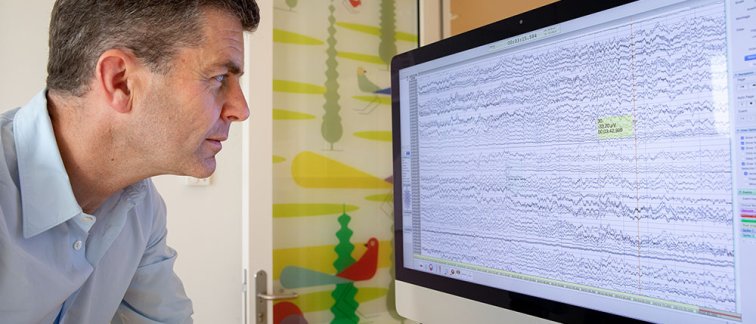Change of focus point
As a new professor of neurobiological developmental disorders, Hilgo Bruining argues for a new perspective on developmental disorders. “We need to focus on the origins of developmental disorders and understand how they lead to changed interaction with the environment. Factors like screen time, gaming, and social media put increasing demands on the developing brain that cannot be encountered by current clinical concepts. Little has changed in the past forty years in the behavioral descriptions we use to diagnose children with a broad spectrum of developmental problems. New treatments are not forthcoming and parental dissatisfaction is growing about the lack of sophistication.”
Precision medicine
In 2019, Hilgo Bruining joined the Department of Child and Adolescent Psychiatry & Psychosocial Care at the Emma Children’s Hospital at Amsterdam UMC. There, his goal is to completely understand the individual child by generating a personal profile created by team science. Based on this personal profile, build on a.o. genetic mutations, stem cell diagnostics, family and environmental profiles, somatic history, EEG markers, and therapy history Bruining develops treatments based on individual needs and causes.
Exchange labels for monitor models
In the inaugural lecture, Bruining will argue to exchange the current system of labels and symptom management for models that monitor the interaction between the growing brain and the rapidly changing outside world full of screens and other stimuli. From this method, the use of existing resources such as bumetanide for selected children is developed as a rational treatment. This supports stimulus processing by restoring the natural balance in the brain.
N=You
In this spirit, Bruining founded the N=You center for precision medicine with a nod to personal n=1 treatments as a new paradigm. The N=You center focuses as much as possible on the cross-pollination between care and research, using new techniques such as stem cell diagnostics and quantitative EEG analysis to read the stimulus balance.
Photography: Bas Uterwijk

